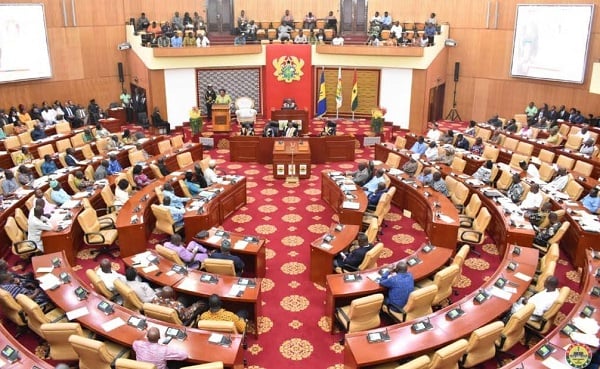Parliament has secured a significant £800,000 funding package from the World Bank to launch a comprehensive 18-month capacity-building programme designed to enhance lawmakers’ oversight of Ghana’s economic and financial governance.
The initiative, titled “Building the Capacity of Parliamentarians for Economic and Financial Governance,” was officially launched on Wednesday, June 18, 2025, and is being rolled out in collaboration with the United Kingdom’s Foreign, Commonwealth and Development Office (FCDO).
According to a statement from the Parliamentary Service, the programme is part of a strategic push to equip Members of Parliament—especially new entrants—with the technical expertise to scrutinise economic policies, public expenditures, and fiscal decisions with greater rigour and independence.
Speaker Bagbin: A Leap Toward Stronger Parliamentary Accountability
Speaking at the launch, Speaker of Parliament Rt. Hon. Alban Sumana Kingsford Bagbin described the initiative as a “timely intervention” aimed at deepening parliamentary scrutiny over national finances.
“This initiative will strengthen parliamentary oversight, improve fiscal management, and deepen understanding of economic policies among Members of Parliament. By equipping Parliament, especially new legislators, with needed skills and knowledge, the programme will foster effective governance, accountability, and transparent management of public resources,” the Speaker stated.
Global Backing to Improve Ghana’s Fiscal Oversight
The programme is being funded through the World Bank, with support from the UK government via the FCDO. Ms. Michelle Keane, Acting Country Director for the World Bank in Ghana, Liberia, and Sierra Leone, emphasized the importance of arming parliamentary committees with the technical knowledge to evaluate government budgets and fiscal performance.
“Members of parliamentary committees require the necessary skills and knowledge to evaluate allocations and uses of government expenditures and revenues,” she said. “This training will help ensure that economic policies align with medium-term sustainability and development goals.”
British Chargé d’Affaires Keith McMahon echoed this view, saying the UK is committed to helping Ghana’s institutions deliver prosperity for its people.
“The UK firmly believes that only Ghanaians and their elected representatives can drive Ghana’s prosperity. We are proud to support both the public and parliamentarians to deliver the best economic outcomes for the country through this new partnership,” Mr. McMahon added.
Broad Programme Scope Targeting Policy Impact
The Parliamentary Service revealed that the programme will directly benefit members of key committees, including Finance, Budget, Public Accounts, Economy and Development, and Government Assurances. In addition, staff from the newly established Office for Parliamentary Analysis and the Citizens’ Bureau will receive technical support.
The programme will deliver hands-on training in areas such as public financial management, macroeconomic forecasting, tax policy, and equitable growth strategies. Training materials, handbooks, and toolkits will be developed to support MPs and committee staff throughout the initiative.
Beyond training, the programme will promote peer-learning exchanges with other parliaments and foster stronger engagement between Parliament and civil society, think tanks, and private sector actors to address critical knowledge gaps.
Boosting Transparency and Public Confidence
According to the Parliamentary Service, one of the long-term objectives of the programme is to enhance transparency by encouraging the wider use of parliamentary data by the media and the public, while supporting MPs to make more evidence-based contributions to national economic debates.
It is also expected to complement Parliament’s broader reform agenda aimed at improving the quality of public policy and ensuring that public funds are used effectively for the benefit of citizens.
Speaker Bagbin expressed gratitude to the World Bank and the FCDO for their confidence in Ghana’s legislature, stating that their support reinforces Parliament’s ongoing efforts to strengthen its institutional capacity and uphold democratic accountability.
This groundbreaking initiative, the statement concluded, marks a decisive step toward building a more informed and empowered Parliament capable of shaping sound economic policies and ensuring robust oversight of government actions.


